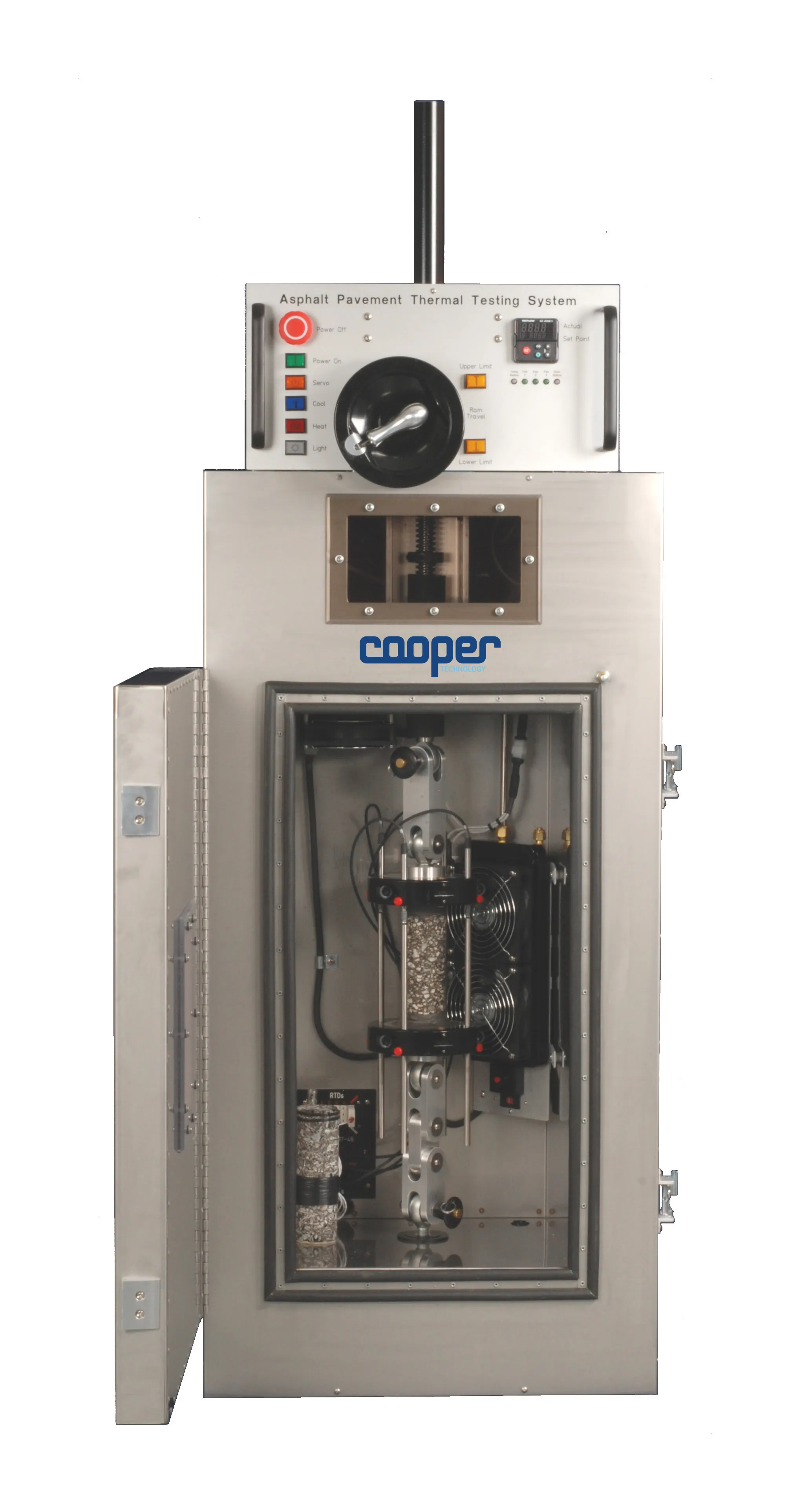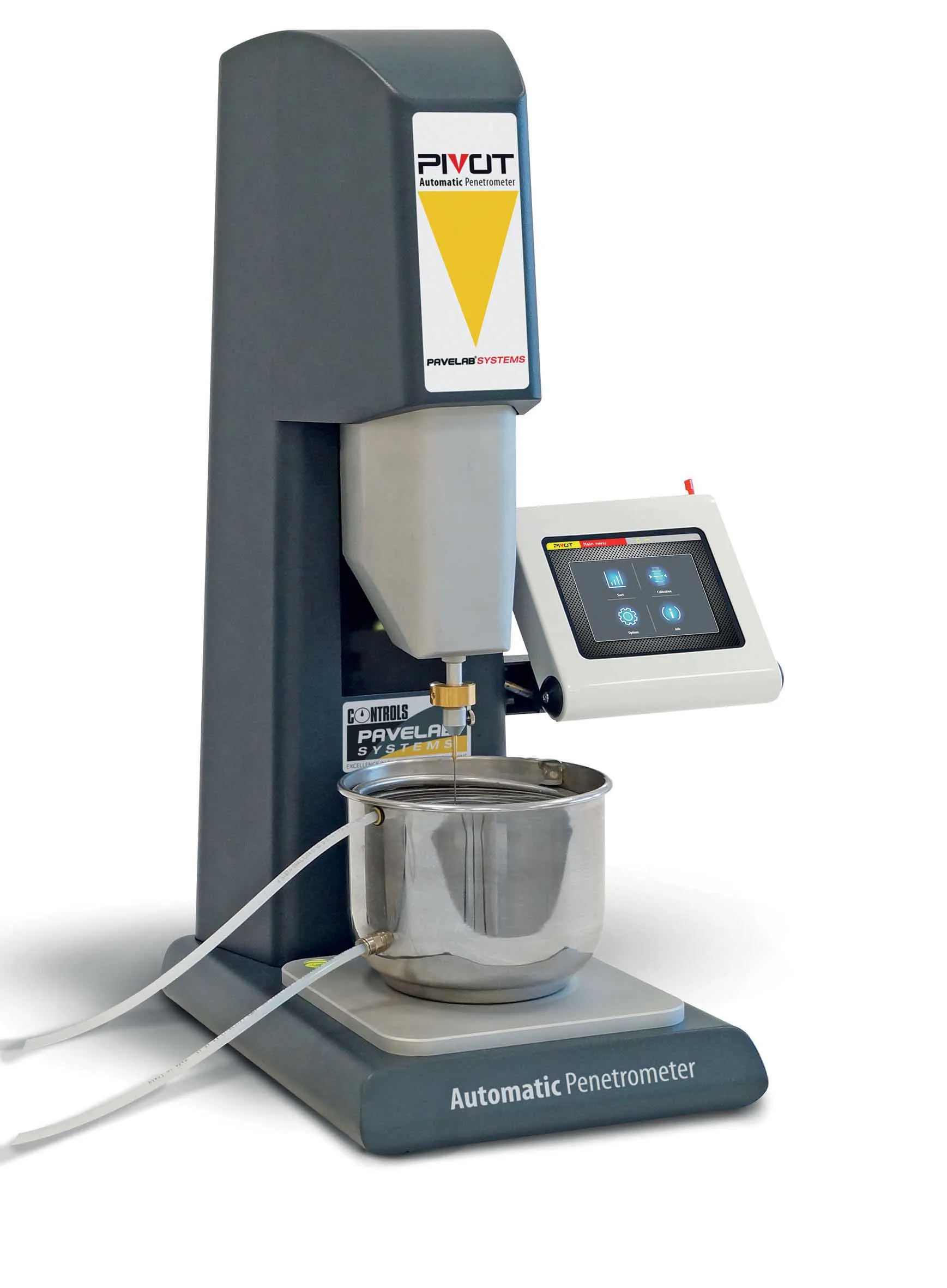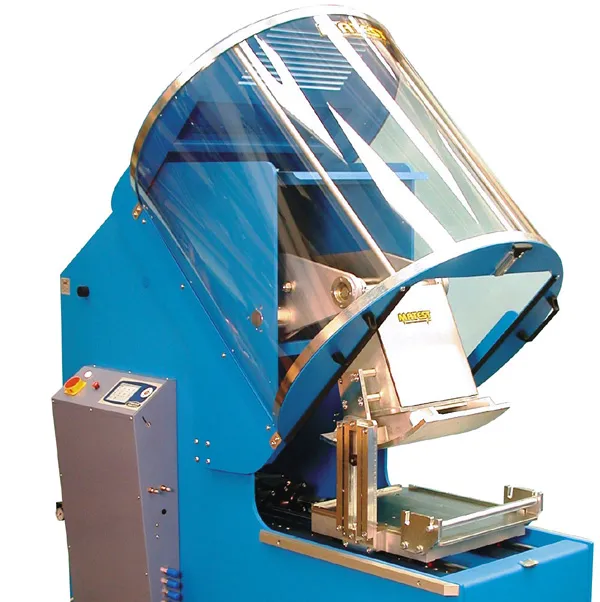Cooper Research Technology has added two new machines to its range of cold weather testing solutions: a Disc Shaped Compact Tension (DCT-ASTM D7313) and Semi-circular Bending Test (SCB). These join Cooper’s Asphalt Pavement Thermal Testing Systems (EN12697-46 or AASHTO TP10) and Prall Studded Tyre Wear Tester (EN 12697-16).
April 10, 2013
Read time: 1 min

Cooper Research Technology has added two new machines to its range of cold weather testing solutions: a Disc Shaped Compact Tension (DCT-ASTM D7313) and Semi-circular Bending Test (SCB). These join Cooper’s Asphalt Pavement Thermal Testing Systems (EN12697-46 or AASHTO TP10) and Prall Studded Tyre Wear Tester (EN 12697-16).
“Low temperature cracking is the most widespread distress found in asphalt pavements built in cold weather climates,” said Cooper research director Andrew Cooper. “With greater extremes of temperature this affects far more roads than was previously the case.5941 Cooper Technology has recognised this need and has worked tirelessly to develop the latest methods from Europe and the US.”
“Low temperature cracking is the most widespread distress found in asphalt pavements built in cold weather climates,” said Cooper research director Andrew Cooper. “With greater extremes of temperature this affects far more roads than was previously the case.









